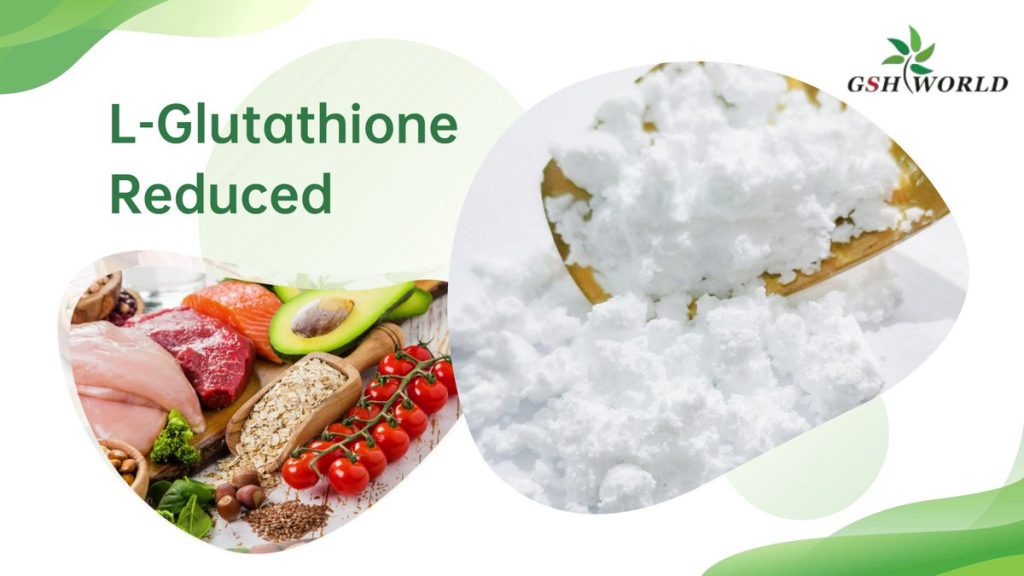Japan has discharged harmful water polluted by the Fukushima nuclear power plant into the sea since August 24, which not only seriously damaged its image, but also directly harmed its domestic people and industries, and made the whole world suffer from nuclear sewage for a long time, harming others and not benefiting itself . And it planned to continue to discharge for 30 years, and ordinary people will inevitably exposed to the hazards of nuclear radiation in the future. glutathione
As ordinary people, they will gradually feel the impact. Some domestic people are more anxious and start the work of “preparing for shortages” and “preparing for emergencies” in advance, and the most prominent performance is to grab salt.
grab salt
Grabbing salt because of concerns: one that after the seawater polluted, it will not work to eat sea salt. In fact, the iodine content of iodized table salt cannot reach the amount required to eliminate the threat of radiation, and eating it is useless. Eating a large amount in a short period of time will seriously damage your health.

The source of my country’s table salt is well salt, lake salt, and sea salt “three salts in one house”. Most of them are well salt, and then lake salt and sea salt. It said that there are other big salt fields in our country, so it is really unnecessary to rush to hoard salt.
So what exactly do you need to stock up on?
The doctor thinks it is 3 things:
- Store some “memory”
Whenever there is a major event or chaos, it is a “traditional action” of some people in our country to grab salt and hoard salt. So far, there have been 4 salt grabs.
The first was the start of SARS, the second was the Fukushima nuclear power plant leakage accident,
the third was the start of the new crown, and the fourth was two days ago. The result the salt that robbed in 2011. Not finished.
2 The second is to store up some “knowledge”
Learn authoritative popular science knowledge, reserve the necessary basic knowledge, and face nuclear pollution rationally. Nuclear contaminated food refers to food contaminated by nuclear radiation. The effects of nuclear radiation on human health depend on several factors, including radiation dose, duration, individual sensitivity, and the type and amount of food ingested. The possible negative effects of nuclear radiation on human health include the following aspects:
- Acute radiation sickness: Under extremely high doses of radiation exposure, acute radiation sickness may occur, manifested as nausea, vomiting, diarrhea, headache, weakness, loss of appetite and other symptoms. Severe acute radiation sickness may result in damage to internal organs, bone marrow suppression, and compromise of the immune system.
- Long-term health risks: Long-term intake of nuclear-contaminated food may increase the risk of certain cancers, genetic abnormalities, and other chronic diseases. These risks accumulate over time with long-term radiation exposure.
- Reproductive and developmental effects: Nuclear radiation may have adverse effects on the reproductive system and the developing fetus. Pregnant women exposed to nuclear radiation may face risks such as miscarriage, fetal malformation, developmental delay and intellectual disability.
It should emphasized that the consequences of nuclear contamination of food depend largely on the size of the radiation dose.
Most countries have strict food safety standards and monitoring measures designed to ensure that radiation levels in food are within safe limits. If you worried about the impact of nuclear-contaminated food, please consult relevant health experts or local health monitoring agencies in time to obtain accurate information and suggestions.
3. The third is to stock up on “health”
To deal with the impact of Japan’s nuclear sewage discharge,
it comes down to the individual’s health in the final analysis, and health cannot wait. Seriously adhere to good living habits, pay attention to diet,
exercise, emotions and other aspects of cooperation, so that health can last forever.
“Treatment before disease” is the scientific thought of “preventing disease before disease and preventing disease from becoming worse” that ancient physicians constantly summed up and perfected in the process of preventing and curing plague. It is a health medical model dedicated to human beings. We firmly believe that scientific nutrition technology and the essence of modern Chinese medicine can prevent and change various human diseases, actively face scientific nutrition and live a healthy life.
Unavoidable radiation, what should I do?
Recently, rumors that “eating iodized salt can protect against radiation” have appeared on the Internet. The CDC issued a reminder that eating iodized salt cannot prevent nuclear radiation. Excessive salt intake will increase the load on the heart and kidneys, causing diseases such as high blood pressure. Excessive iodine intake will also disrupt the normal function of the thyroid gland.
Clinical studies have shown that glutathione can effectively improve the radiation protection ability of cells,
treat leukopenia and bone marrow tissue inflammation caused by radiopharmaceuticals or radiation,
and is an essential substance for the human body to resist radiation.

What is glutathione?
Glutathione exists in almost every cell of the body and widely exists in various organs of the body.
It is a tripeptide containing γ-amide bonds and sulfhydryl groups. It a tripeptide composed of glutamic acid, cysteine and glycine.
plays a direct or indirect role in many important biological phenomena, such as protein DNA Synthesis,
liver synthesis, detoxification, inactivation of hormones, etc., and can promote the metabolism of bile acid,
which is conducive to the absorption of fat and fat-soluble vitamins in the digestive tract.
- The role of glutathione: detoxification and liver protection
Glutathione exists in each of our cells as a detoxifying substance, but its highest content is found in liver cells. It has the function of detoxification and can combine with harmful substances such as electrophilic radicals and free radicals to produce the curative effect of detoxification and cell protection.
2.The role of glutathione: eliminate free radicals
Glutathione is an endogenous antioxidant in the human body, known as the “King of Antioxidants”. A large number of free radicals produced in the human body every day are mainly “eliminated” by the glutathione synthesized by the human body itself.
3.The role of glutathione: anti-radiation
Glutathione can effectively improve the radiation resistance of cells, treat leukopenia and bone marrow tissue inflammation caused by radiopharmaceuticals or radiation,
and is an essential substance for the human body to resist radiation.
When the body is irradiated, it can produce reactive oxygen species and free radicals with oxidative effects. The GSH antioxidant system in cells can effectively remove the reactive oxygen species and free radicals caused by radiation and reduce the damage of radiation to cells. It can clear and detoxify the active intermediate products produced spontaneously by cells or caused by external toxic factors, and has the effect of protecting cells.
4.The role of glutathione: inhibit cell gene variation
Glutathione has the effect of inhibiting cell gene mutation,
increasing the concentration of glutathione in cells will initiate a negative feedback mechanism, significantly reducing the content of glutathione in tumor cells,
thereby reducing the activity of tumor cells and effectively slowing down the tumor cells. The value-added speed, combined with radiotherapy and chemotherapy, the effect of cancer treatment is more significant.
5.The role of glutathione: enhance the immune system
A balanced immune system is the healthiest state of the human body. Many diseases are caused by viruses breaking through the body’s immune defenses. It has been clinically verified by experts that the healthy proliferation and normal activities of immune cells depend on the amount of glutathione. Glutathione is the main “food” of immune cells. It can supplement and maintain high concentrations of glutathione in normal cells, activate the activity of immune cells,
accelerate the differentiation and proliferation of T cells and B cells, and enhance the resistance against foreign pathogens. The ability of disease substances such as bacteria and viruses to invade.



